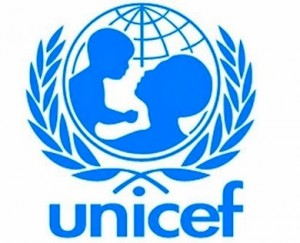Number of unaccompanied children arriving by sea to Italy doubles in 2016 – Report
 The number of unaccompanied or separated children who arrived to Italy by sea doubled in 2016, the United Nations Children’s Fund (UNICEF) reports.
The number of unaccompanied or separated children who arrived to Italy by sea doubled in 2016, the United Nations Children’s Fund (UNICEF) reports.
The majority of these children who arrived in Italy the past year originated from Eritrea, Egypt, The Gambia and Nigeria.
The report says that the number of these children was 25,800 which is more than double the 12,360 who arrived during the previous year.
These children account for a staggering 91 per cent of all the 28,200 children who reached Italy’s shores in 2016 as refugees or migrants.
“These figures indicate an alarming trend of an increasing number of highly vulnerable children risking their lives to get to Europe. Current systems in place are failing to protect these children who find themselves alone in a totally unfamiliar environment. Because they are on the move, a coordinated European response is needed to keep them safe,” said UNICEF Senior Emergency Manager, Lucio Melandri.
While most of the children were boys aged 15 to 17 years, younger children and girls have also been among the new arrivals. Girls in particular are at risk of sexual exploitation and abuse, including commercial sexual exploitation by criminal gangs.
Several girls interviewed by UNICEF staff earlier this year in Palermo reported being forced into prostitution in Libya as a means to ‘pay off’ the cost of the boat travel across the Mediterranean. While many of the boys who arrive in Libya are forced into manual labour, it noted.
The report adds that, the Central Mediterranean route from North Africa to Italy is unique for the incredibly high proportion of unaccompanied and separated children among the refugees and migrants. By comparison, only 17 per cent of the child refugees and migrants who arrived in Greece by sea in 2016 were unaccompanied by adult family members or guardians.
“The presence of so many unaccompanied or separated children along the Central Mediterranean route is unprecedented and it is obviously clear that we have a serious and growing problem on our hands. Apart from addressing the factors that are forcing children to travel alone from their homes, a comprehensive protection and monitoring system needs to be developed to protect them,” Lucio Melandri was further cited as saying.
By Pamela Ofori-Boateng
Copyright ©2017 by Creative Imaginations Publicity
All rights reserved. This news item, or any portion thereof may not be reproduced or used in any manner whatsoever without the express written permission of the publisher except for the use of brief quotations in reviews
